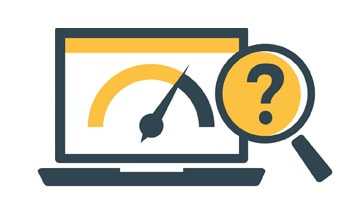How to Use Less Power - The Definitive New Zealand Guide
Our tips for using less power include understanding your energy plan, implementing energy-saving habits, considering key building and DIY improvements and installing Smart devices to maximise savings.
Updated 10 July 2024
Summary
- Power bills are a constant and unavoidable expense. There are many energy providers in New Zealand, and we've conducted a comprehensive comparison, but regardless of what company you're with, there are many ways you can save on energy, and we outline them in this guide.
- Some will involve the visit of a professional builder or plumber, but many are small fixes you can carry out yourself and changes to your consumption habits.
- If you have a smart meter and are on a plan that charges you differently during peak and off-peak times, you can save further by running some of your appliances at night.
- Know this first: By moving more power off-peak, you're not only reducing the load on New Zealand's national power grid and infrastructure, but you're also more likely to be using electricity from cleaner generation sources as there tends to be less fossil fuel generated electricity in the system overnight.
MoneyHub Founder Christopher Walsh shares his views around saving energy:"While New Zealand has plenty of renewable power sources, nothing is guaranteed, and droughts can happen without warning - the Auckland floods may be followed in the years to come with no rain at all. Saving power involves adopting simple habits in everyday routines. This helps you lower energy bills and contribute to a more sustainable power supply".
"Saving power is surprisingly easy, and most wins don't involve any upfront cost or discomfort. Best of all, you don't need to minimise shower time or heating to save big - our guide has been published to give you all the options. Small changes in behaviours add up to lower power bills month after month". Our must-know tips and suggestions are outlined in five categories below: |
Christopher Walsh
MoneyHub Founder |
Understand your energy planA good starting point when aiming to save money on energy is to familiarise yourself with the details of the plan you're on and ensure that you are making the most of it.
|
Implement energy-saving habitsGeneral tips
We've put together some useful tips and general habits that can help you save energy and money: Ventilation tips:
Kitchen tips:
Water usage:
Choosing appliances When replacing appliances, take into consideration their star rating. Better-rated appliances may be more expensive but can be cheaper to run in the long term. Visit Genless's Efficient Appliance calculator to compare products based on their energy rating. Other:
Tips per appliance We've put together several tips on how to save energy by slightly changing your habits, starting with the most power-hungry appliances:
|
Consider building improvements
You might be eligible for a grant: If you own and live in a house built before 2008, have a Community Services Card (LINK), or live in an area identified as low-income, you might be eligible for a grant from the Warmer Kiwi Homes Programme. This could cover up to 80% of the ceiling and underfloor insulation or 80% of the cost of an approved heater. Get a free assessment You can get free advice from the CEA or a free online assessment from Homefit (if you want a visit or a certification that costs $100 to $300). |
DIY improvementsYou can do several things to make your house better insulated, drier and easier to warm or keep cool.
|
Smart devices to maximise savingsYou can incorporate several gadgets into your home to make it more energy-efficient. The aim is to reduce energy waste as much as possible by scheduling on-times for your devices; you can do this with low-tech mechanical timers or wifi-enabled smart plugs; the choice is yours. These are especially useful if you are on a plan that charges cheaper prices for energy used during the night or off-peak times, but even if you're not, you'll still benefit by reducing your overall consumption.
|
Further guides and resources:







